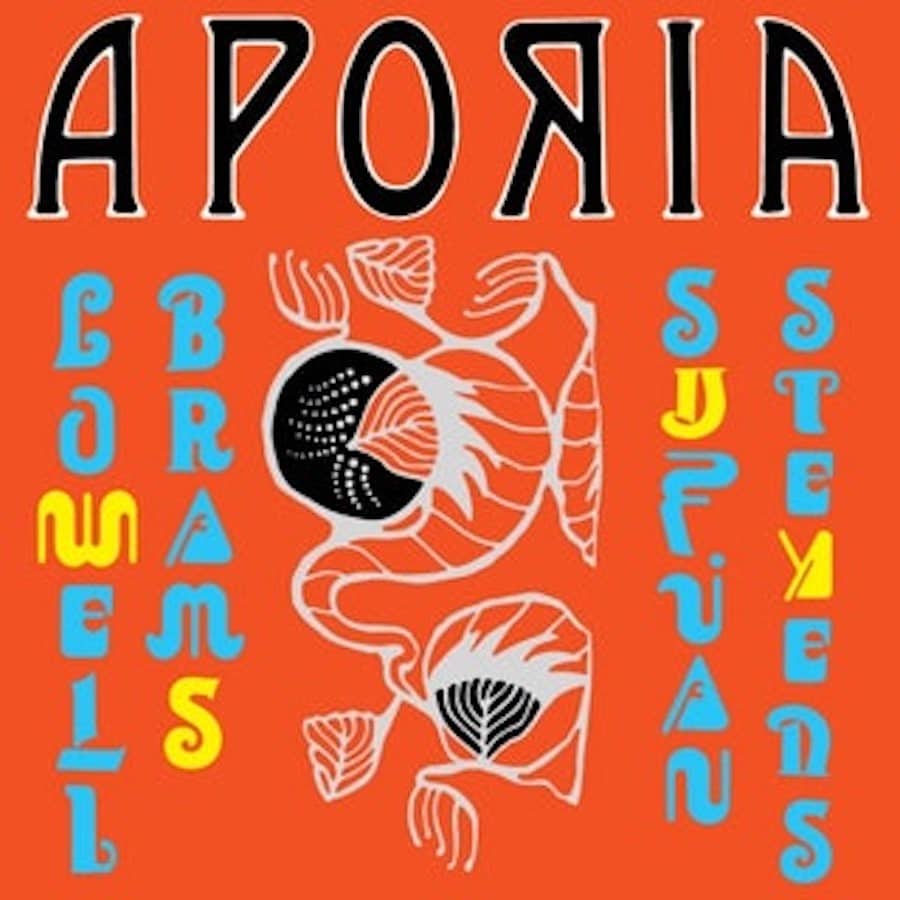For the last two decades, the enigmatic Sufjan Stevens has experimented with different genres from electronic pop to folk. His last studio album, Carrie and Lowell (2015), is reminiscent of the folk and personal lyricism of his earlier albums Michigan (2003) and Illinois (2005). The melancholy sound drenched with lyrics inspired by Greek mythology and Sufjan Steven’s personal demons expertly weave a story of how he dealt with the loss of his late mother. Since then, he has played with the same style of folk for his contributions to the Call Me by Your Name soundtrack, even featuring a remix of his old song, “Futile Devices” from his 2010 album, Age of Adz.
His recent collaboration with his stepfather and fellow musician Lowell Brams, Aporia, is a step away from his past towards something new and exciting. The pair plays around with elements of new age, ambient and electronic music, showcasing their range and daring nature. Together, they create a dedication to bright sunny days devoid in the present landscape in this expansive 21-track album.
Sufjan’s fascination with Greek mythology is evident in the first track of the album, “Ousia” (Greek for substance or essence). The track provides a serene mood through mesmerizing swells of sound that manage to capture the album’s essence and drifts the listener to an inviting experience. The opener of the album is contrasted by “What It Takes” in tone by bringing serenity to a distorted, energetic space and length by being one of the longest songs on the album at just over three minute. The heavenly chorus in the background provides a strong backbone for the playful synth melodies. The track “Misology” meanwhile, also contains choruses that give off the essence of a higher power typically associated with Christian music. However, the track uses it to give off an eerie, harrowing atmosphere where it feels threatening and claustrophobic, reminiscent of horror movie soundtracks. The combination of this and its title could be a jab at the ignorance spread by controversial political leaders in present times.
Sufjan dips from political to personal on album single, “The Runaround”. His lyrics “Give me a name / More than a flame / More than a metaphor” speaks to a relationship gone awry where there is still love felt for the partner. Sufjan’s expressive and poetic lyrics are always gorgeous and breathtaking that it’s disappointing to only have them showcased on one of Aporia’s tracks.
Instrumental albums can have tracks that all sound alike and while Sufjan and Lowell manage to break that expectation, the album is not entirely perfect. Some of the shorter tracks like “Backhanded Cloud” seem out of place in the entirety of the album. Aside from its synth melodies, it does not follow the same grandiose magic that the other tracks happen to have. As a whole, Aporia is a collection of songs that is equivalent to the feeling of insignificance compared to the profound beauty of the universe and the issues of humanity. Aporia proves that it is a step in a new direction for Sufjan Stevens and a fitting end to a career for Lowell Abrams.









